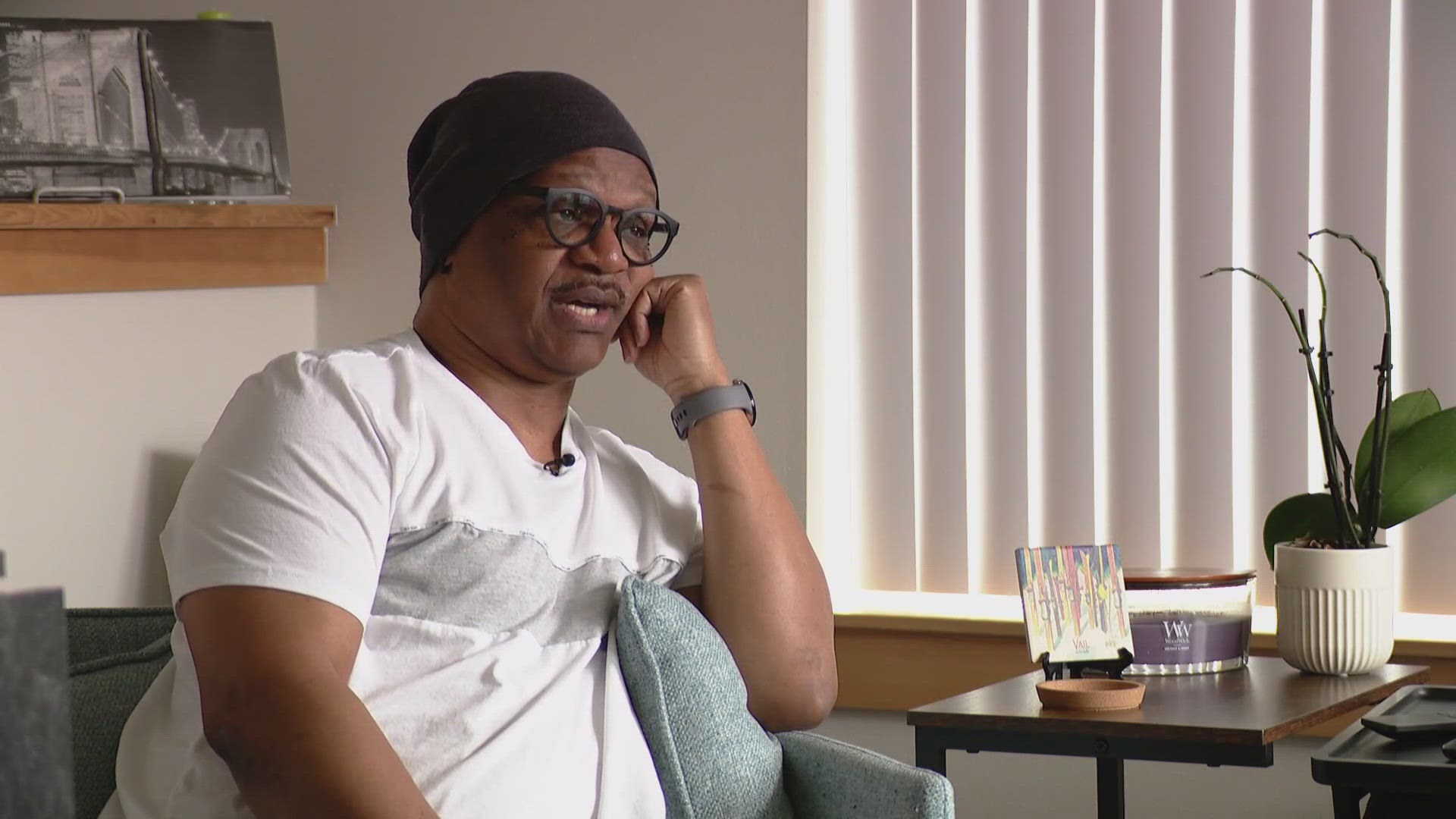SEATTLE — The number of LGBTQ+ seniors stands at 3 million today, and that number is projected to double by 2030.
This brings urgency to provide affordable and culturally sensitive living spaces for the aging LGBTQ+ population.
Pride Place is one of the first to do so in the Pacific Northwest.
"I love it, I love it, love it, did you hear what I said-- I love it," Pride Place resident Sebastian O'Shea Campbell-Cooper said. Campbell-Cooper has been living in his one-bedroom unit since September of 2023. He is quick to point out the plethora of windows that spill sunshine into his living room.
The 63-year-old Navy veteran says the first-ever affordable housing complex for LGBTQ+ elders has given him permission to breathe a sigh of relief.
"This is probably the happiest I've ever been," he said. "Out, open, and I can live in my own place, and I don't have to worry about it."
When he says "worry about it," he's referring to anyone giving him grief about his identity.
It's a well-deserved reprieve after he spent two decades doing just the opposite.
"I did 20 years in the Navy but I didn't really acknowledge my gayness until well after that," Campbell-Cooper said "Probably around 1998, is when I said ok. This is it."
20 years is a long time to not acknowledge one's identity.
"But we had Don't Ask Don't Tell; there was no mentioning that at all. I just put my head down and did my 20 years," Campbell-Cooper added.
But there's no hiding at the Pride Place complex. Judy Kinney, the executive director of Gen Pride, which worked with Community Roots Housing to develop Pride Place, said it took decades of dedication to open an affordable 55+ LGBTQ living community to finally address the long-neglected needs of rainbow elders.
According to a national nonprofit civil rights organization, nearly half, 48% of older same-sex couples faced discrimination when they applied for elder housing.
The organization found discrimination puts LGBTQ+ elders at greater risk for social isolation, poverty, chronic health issues and premature mortality.
"There's just a lot of discrimination around, towards LGBT people," Kinney said. "Can LGBT people in retirement communities date? Can they be sexual together?"
Dr. Karen Fredricksen Goldsen's landmark study Aging with Pride further shows a lifetime of prejudice adds up.
"We do see that within the LGBTQ older adults their trajectories in health-- this wear and tear, this stress has a very significant impact on declining health," Fredricksen Goldsen said.
The study also found a quarter of members of the LGBTQ community surveyed live in poverty; making affordable housing like Pride Place crucial.
"In part tied to those economic differences, that discrimination in jobs, in pay that these communities may have experienced earlier in life, or the ability to hold a job," Fredricksen Goldsen said.
Pride Place, is now a way to honor the very generation that built Pride into the community it is today. It is a safe haven for rainbow elders to transition into their golden years without judgement.
"When you get to be in your 50s, and 60s you would think all that's over with," Campbell-Cooper said. "You want to be in a place where you can be comfortable in being yourself, and I totally feel that way here."
Pride Place has 118 affordable living units for 55+ members of the LGBTQ community and allies. They are accepting applications.
Gen Pride, which is located on the first floor of Pride Place, serves as the senior community center.

